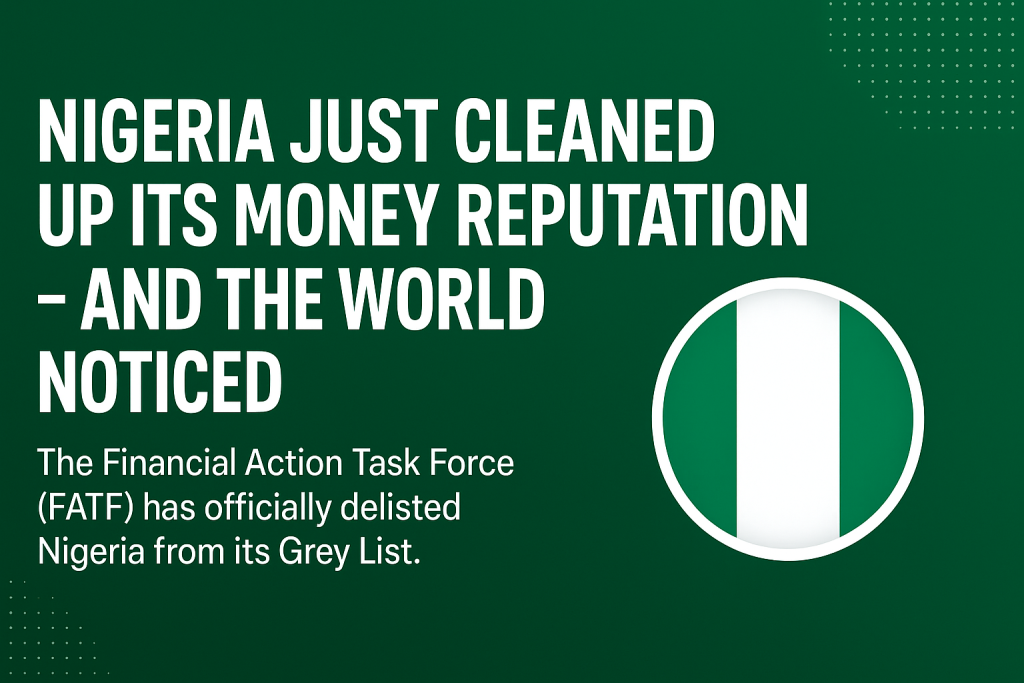Nigeria Delisted from FATF Grey List: A Global Win
Nigeria has finally achieved a long-awaited milestone in global finance: the Financial Action Task Force (FATF) has officially removed the country from its Grey List. This isn’t just a compliance win, it’s a huge leap for credibility, investor confidence, and the future of digital finance in Nigeria.
If you’re unfamiliar, the FATF Grey List is essentially a financial “warning zone.” Countries on this list are flagged for needing stronger measures against money laundering and terrorism financing. Being on it can slow down global transactions, limit investment opportunities, and make the country appear “risky” in the eyes of international partners.
A History of Grey Zones
Nigeria first appeared on the FATF Grey List in 2001, got off in 2006, but slipped back in 2023. This time, the Central Bank of Nigeria (CBN) didn’t wait for international pressure, they set a clear goal to come off the Grey List by May 2025 and went all-in.
Some of the critical reforms included:
- Enacting and implementing new Anti-Money Laundering (AML) and Anti-Terrorism Financing laws
- Establishing a public register of beneficial owners via the Corporate Affairs Commission (CAC) under the Companies and Allied Matters Act (CAMA, 2020)
- Increasing the independence of the Nigerian Financial Intelligence Unit (NFIU) as a separate entity from EFCC
- Strengthening coordination between EFCC, NFIU, and CBN for efficient compliance
By October 2025, FATF acknowledged Nigeria’s efforts and delisted the country. It was a case of decisive action paying off.
Why This Matters
- Investor Confidence is Back: Nigeria is no longer a “risky” checkbox on global transaction screens, making it more attractive for foreign investors.
- Digital Finance Levels Up: With fewer barriers to cross-border trade, fintechs, freelancers, and creators can operate more seamlessly on the global stage.
- Compliance Becomes Currency: Transparency and adherence to global standards are now non-negotiable, it’s the new baseline for doing business.
For a nation steadily shifting its economic narrative from oil dependency to innovation and technology, this isn’t just a compliance milestone, it’s a reputation reset. The world is finally paying attention, and Nigeria is ready to play on the global financial stage.
Bottom Line: Nigeria’s removal from the FATF Grey List is more than a bureaucratic checkbox, it’s a signal that the country is serious about reform, transparent finance, and global integration. Better late than never indeed.


